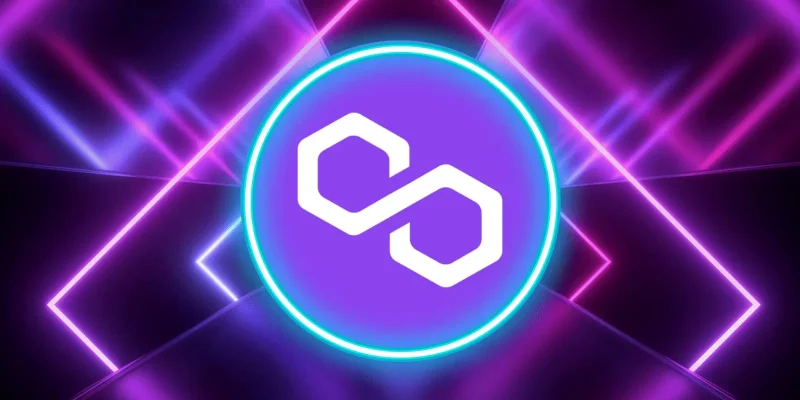- EVM compatibility or equivalence allows dapp developers to port their applications from other Ethereum-based chains
- Multiple zk-rollup implementations of the EVM will go live in the next 6 months
The race to get a working Ethereum virtual machine (EVM) on a zero-knowledge proof-based rollup (zk-rollup) is heating up, as Polygon announced its EVM-equivalent effort is live on a public testnet, today.
Rival zkSync has had its EVM testnet up since February and expects to roll out its mainnet by the end of October.
Once thought to take three to five years of development work, the announcement at the Polygon Connect event in Bogota, Colombia — on the sidelines of DevCon, the largest Ethereum developer conference — confirms that zkEVMs are right around the corner, according to Polygon co-founder Mihailo Bjelic.
“Thanks to several breakthroughs that we had internally in our zkEVM team, we were able to improve the efficiency by several orders of magnitude, and we managed to deliver in a little bit less than one year,” Bjelic told Blockworks in an interview.
The advent of zkEVMs is seen as the likely endgame for Ethereum scaling. But Ethereum co-founder Vitalik Buterin cautioned in December 2021: “It will take years of refinement and audits for people to be fully comfortable storing their assets in a ZK-rollup running a full EVM.”
Zero-knowledge rollups move the execution of transactions off-chain for verification and then batch those transactions to be settled on Ethereum.
The technology has the potential to achieve several major blockchain design goals: near-infinite scalability, high security guarantees and a familiar experience for Ethereum developers to build.
“So you can take, let’s say, 1 million transactions, generate one single proof for them, and that proof takes a fraction of a second to verify, and you prove that these 1 million transactions were correct,” Bjelic said. “So that’s, like, super cool, and allows us to scale.”
Unlike optimistic rollups, zk-rollups don’t require long withdrawal periods associated with fraud proofs, which can lead to greater capital efficiency.
Polygon claims to be the first general purpose, EVM-equivalent and fully open-source zk-rollup. Major DeFi platforms such as Aave and Uniswap, as well as the social platform Lens currently on Polygon’s PoS chain, are set to be among the protocols to kick the tires on the zkEVM testnet.
But what will they find when they do?
Equivalence versus compatibility
Polygon zkEVM is “Ethereum-equivalent,” the Polygon team said, which means that all existing smart contracts, developer tools and wallets already built for Ethereum will work seamlessly.
But according to Steve Newcomb, chief product officer at zkSync, a look at the project’s Github code repository implies otherwise. As of Monday, the repository shows 125 opcodes (abbreviated from operation codes) are missing.
“I read Polygon’s source code every other weekend…It just is not possible that they have [the prover] working for general purpose [use],” Newcomb told Blockworks in an interview.
By contrast, zkSync’s EVM — dubbed zkSync 2.0 — is referred to as “Ethereum-compatible,” because just three opcodes are deliberately omitted to gain performance.
“We think it’s a non-issue,” Newcomb said on the Bankless podcast last month. “It’s very easy to port to us,” he added, noting that dapp developers won’t find anything lacking with zkSync’s implementation.
Both Polygon and zkSync have a developer-friendly edge over non EMV-compatible zk-rollup tech from Starkware and Loopring, in that existing code written in solidity for Ethereum doesn’t need to be transcompiled for use on the rollup.
And, evidently they won’t be the only games in town. Aside from Scroll, a previously announced EVM-equivalent zk-rollup project, new entrants can be expected, such as Taiko, whose team includes Loopring and GameStop alumnus Matt Finestone.
Blockworks Research’s Matt Fiebach sees a trend forming, predicting more EVM-equivalent ZK rollups will emerge.
“Oh man there are gonna be 50 EVM equivalent ZK rollups next year aren’t there,” he said.
Open-source approach
Key to the operation of zk-rollups is the so-called “prover” — cryptographic logic that signs off on transactions while preserving users’ privacy. The speed and design of the prover is already a major point of contention between the competing teams.
“Polygon zkEVM testnet also includes a completely open-sourced zk-Prover — the first of its kind to be released publicly,” Polygon said in a statement.
The zkSync team plans to open-source its EVM when it launches on mainnet — except for the prover. That will have to wait until the project begins to decentralize through its own set of validators and, presumably, via issuance of a token.
“We don’t have a date yet, because we’re very conservative about giving dates,” Newcomb said, adding the team will be updating a public roadmap, with additional specificity as available.
Newcomb said there are huge advantages to adopting a standard prover, such as native bridges which are not really bridges at all, but “straight cryptography,” making it inherently more secure than existing bridges which have been so hack prone.
“It’s like a browser agreeing to use Javascript and CSS [standards]…and all browsers use it the same, and therefore all browsers benefit because of it,” Newcomb told Bankless.
From testnet to mainnet
Polygon expects to launch the mainnet version of their zkEVM in “early 2023,” a Polygon spokesperson told Blockworks.
That’s an extremely optimistic target, according to zkSync’s Newcomb.
“I just hope to God they’re not hurrying through testnet in an effort to catch up with us,” he told Blockworks.
“You can’t do a security audit in that amount of time. You can’t even book a meeting with a security company to schedule them in that amount of time.”
In a separate announcement today, timed to coincide with Polygon’s, zkSync wrote in a blog post that they are looking beyond layer-2, to what they term “Pathfinder,” a layer-3, also slated for early 2023.
As multiple teams chase what Polygon’s Bjelic frequently has called “the Holy Grail of blockchain scaling,” the race for adoption of zk-rollups — previously seen as a marathon — is now turning into more of a sprint.
Bessie Liu contributed reporting.
Attend DAS:LONDON and hear how the largest TradFi and crypto institutions see the future of crypto’s institutional adoption. Register here.
The post Polygon and Matter Labs Compete on zkEVM Rollups appeared first on Blockworks.












Comments